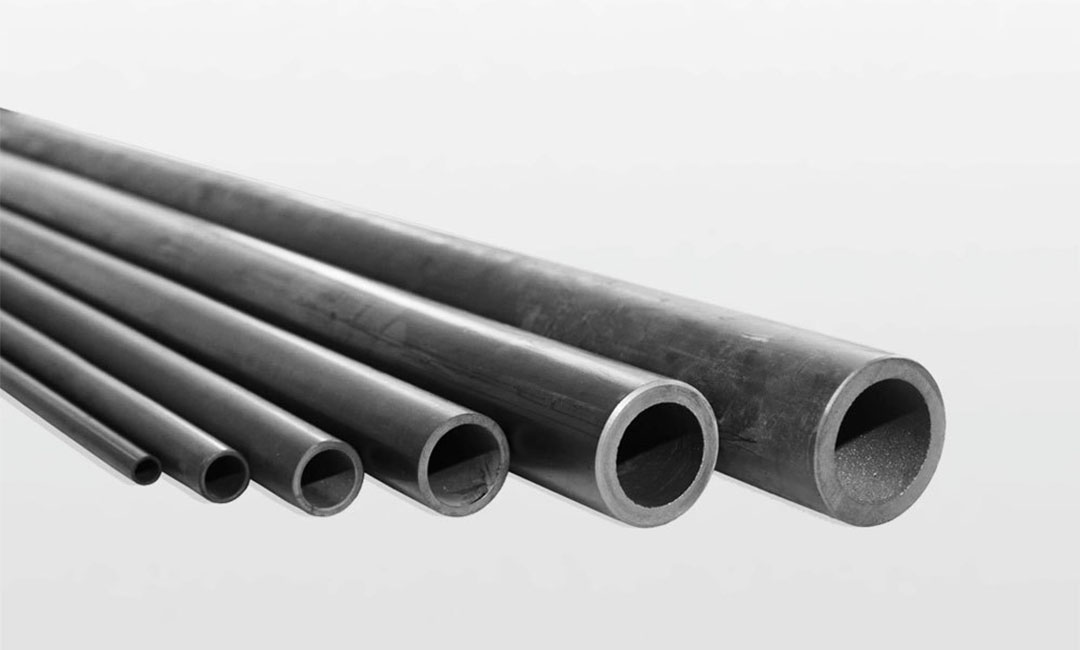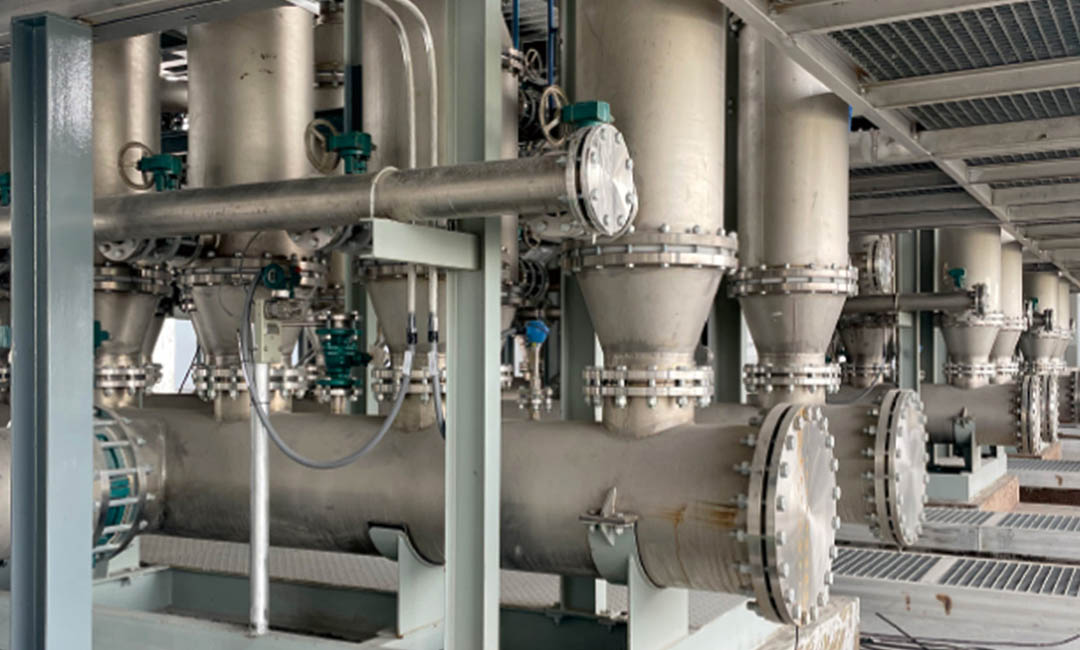Benefits of SiC Membrane Filtration Systems in Industrial Water Purification
Silicon carbide (SiC) membrane filtration systems have emerged as a cutting-edge technology in the field of industrial water purification. These systems offer a range of benefits that make them highly effective in removing contaminants from water, making it safe for various industrial processes. In this article, we will explore the advantages of SiC membrane filtration systems and how they are enhancing industrial water purification.
One of the key benefits of SiC membrane filtration systems is their high efficiency in removing a wide range of contaminants from water. The unique structure of SiC membranes allows for precise control over pore size, enabling them to effectively filter out particles, bacteria, viruses, and other impurities. This high level of filtration efficiency ensures that the water purified by SiC membrane systems meets the stringent quality standards required for industrial applications.
In addition to their superior filtration capabilities, SiC membrane filtration systems are also highly durable and long-lasting. Unlike traditional filtration systems that may require frequent maintenance and replacement, SiC membranes are resistant to fouling, scaling, and chemical degradation. This durability not only reduces operating costs but also ensures consistent and reliable performance over an extended period of time.
Furthermore, SiC membrane filtration systems are environmentally friendly and sustainable. The energy-efficient operation of these systems results in lower energy consumption and reduced carbon emissions compared to conventional water purification technologies. Additionally, the long lifespan of SiC membranes means less waste generated from frequent replacements, contributing to a more sustainable approach to industrial water treatment.
Another significant advantage of SiC membrane filtration systems is their versatility and adaptability to a wide range of water sources and operating conditions. Whether treating wastewater from industrial processes, desalinating seawater, or purifying drinking water, SiC membranes can be customized to meet the specific requirements of each application. This flexibility makes SiC membrane systems a cost-effective solution for a variety of industrial water purification needs.
Moreover, SiC membrane filtration systems offer improved operational efficiency and reduced downtime compared to traditional filtration technologies. The automated control and monitoring capabilities of SiC membrane systems allow for real-time adjustments to optimize performance and minimize system downtime. This enhanced operational efficiency translates to increased productivity and cost savings for industrial facilities relying on purified water for their processes.
In conclusion, SiC membrane filtration systems are revolutionizing industrial water purification by offering a range of benefits that enhance efficiency, sustainability, and performance. From their superior filtration capabilities to their durability and adaptability, SiC membrane systems provide a reliable and cost-effective solution for meeting the stringent water quality requirements of industrial applications. As industries continue to prioritize water conservation and environmental stewardship, SiC membrane filtration systems are poised to play a crucial role in ensuring the sustainable use of water resources for years to come.
Case Studies: Successful Implementation of SiC Membrane Filtration Systems
Silicon carbide (SiC) membrane filtration systems have been gaining popularity in the industrial sector for their ability to provide efficient and cost-effective water purification solutions. These systems offer a number of advantages over traditional filtration methods, including higher flux rates, improved chemical resistance, and longer lifespan. In this article, we will explore some case studies that highlight the successful implementation of SiC membrane filtration systems in various industrial settings.
One such case study comes from a chemical manufacturing plant that was facing challenges with removing contaminants from their wastewater. The plant had been using conventional filtration methods, but they were not able to achieve the desired level of water purity. After installing a SiC membrane filtration system, the plant saw a significant improvement in water quality, with a reduction in contaminants and improved overall efficiency. The system was able to handle a higher volume of water while maintaining a consistent level of purity, leading to cost savings and increased productivity for the plant.
Another successful implementation of SiC membrane filtration systems can be seen in the food and beverage industry. A large bottling plant was struggling with high levels of suspended solids in their process water, which was affecting the quality of their products. By switching to a SiC membrane filtration system, the plant was able to achieve a higher level of water clarity and purity, resulting in improved product quality and reduced waste. The system also proved to be more reliable and easier to maintain than the plant’s previous filtration methods, leading to increased operational efficiency and cost savings.
In the pharmaceutical industry, a manufacturing facility was looking for a more sustainable and cost-effective solution for purifying their process water. After implementing a SiC membrane filtration system, the facility saw a significant reduction in water usage and waste generation. The system was able to remove a wide range of contaminants, including bacteria and viruses, ensuring that the water met the stringent quality standards required for pharmaceutical production. The facility also benefited from the system’s long lifespan and low maintenance requirements, leading to reduced operating costs and improved overall sustainability.
Overall, these case studies demonstrate the effectiveness of SiC membrane filtration systems in enhancing industrial water purification processes. By providing higher flux rates, improved chemical resistance, and longer lifespan, these systems offer a reliable and cost-effective solution for a wide range of industries. The successful implementation of SiC membrane filtration systems in chemical manufacturing, food and beverage production, and pharmaceutical manufacturing highlights the versatility and efficiency of these systems in meeting the unique water purification needs of different industries.

As industries continue to prioritize sustainability and efficiency in their operations, SiC membrane filtration systems are likely to play an increasingly important role in providing reliable and cost-effective water purification solutions. With their proven track record of success in various industrial settings, these systems offer a promising solution for businesses looking to improve their water quality, reduce waste, and enhance overall operational efficiency.
Future Trends and Innovations in SiC Membrane Filtration Systems for Industrial Water Purification
Silicon carbide (SiC) membrane filtration systems have emerged as a cutting-edge technology in the field of industrial water purification. These systems offer numerous advantages over traditional filtration methods, including higher efficiency, longer lifespan, and improved resistance to harsh chemicals and high temperatures. As industries continue to prioritize sustainability and environmental responsibility, the demand for advanced water treatment solutions is on the rise. In response to this growing need, researchers and engineers are constantly exploring new innovations and trends in SiC membrane filtration systems to further enhance their performance and capabilities.
One of the key trends in the development of SiC membrane filtration systems is the focus on improving the membrane structure and design. By optimizing the pore size, surface area, and thickness of the membrane, researchers are able to achieve higher filtration rates and better separation efficiency. Additionally, advancements in membrane fabrication techniques, such as the use of nanotechnology and 3D printing, are enabling the production of membranes with enhanced durability and resistance to fouling.
Another important trend in the field of SiC membrane filtration systems is the integration of smart technology and automation. By incorporating sensors, monitoring devices, and control systems into the filtration process, operators can more effectively manage and optimize system performance. Real-time data monitoring and analysis allow for proactive maintenance and troubleshooting, leading to increased reliability and reduced downtime. Furthermore, automation can help streamline operations and improve overall efficiency, ultimately lowering operating costs and minimizing environmental impact.
In addition to structural improvements and technological advancements, researchers are also exploring novel applications of SiC membrane filtration systems in various industrial sectors. For example, the use of SiC membranes in the treatment of wastewater from pharmaceutical and chemical manufacturing processes has shown promising results in removing contaminants and reducing environmental pollution. Similarly, SiC membranes are being utilized in the desalination of seawater to provide a sustainable source of fresh water for coastal communities.

As the demand for clean water continues to grow, the development of SiC membrane filtration systems is expected to play a crucial role in meeting the needs of industries around the world. By leveraging the latest innovations and trends in membrane technology, researchers and engineers are working towards creating more efficient, cost-effective, and environmentally friendly water treatment solutions. With ongoing research and development efforts, the future of SiC membrane filtration systems looks promising, with the potential to revolutionize industrial water purification processes and contribute to a more sustainable future for generations to come.
In conclusion, SiC membrane filtration systems are at the forefront of innovation in industrial water purification, offering superior performance, durability, and efficiency compared to traditional filtration methods. By focusing on improving membrane structure, integrating smart technology, and exploring new applications, researchers are driving the evolution of SiC membrane filtration systems towards greater sustainability and effectiveness. As industries continue to prioritize environmental responsibility and resource conservation, the demand for advanced water treatment solutions will only continue to grow. With ongoing research and development efforts, the future of SiC membrane filtration systems holds great promise for revolutionizing industrial water purification processes and contributing to a more sustainable future.

